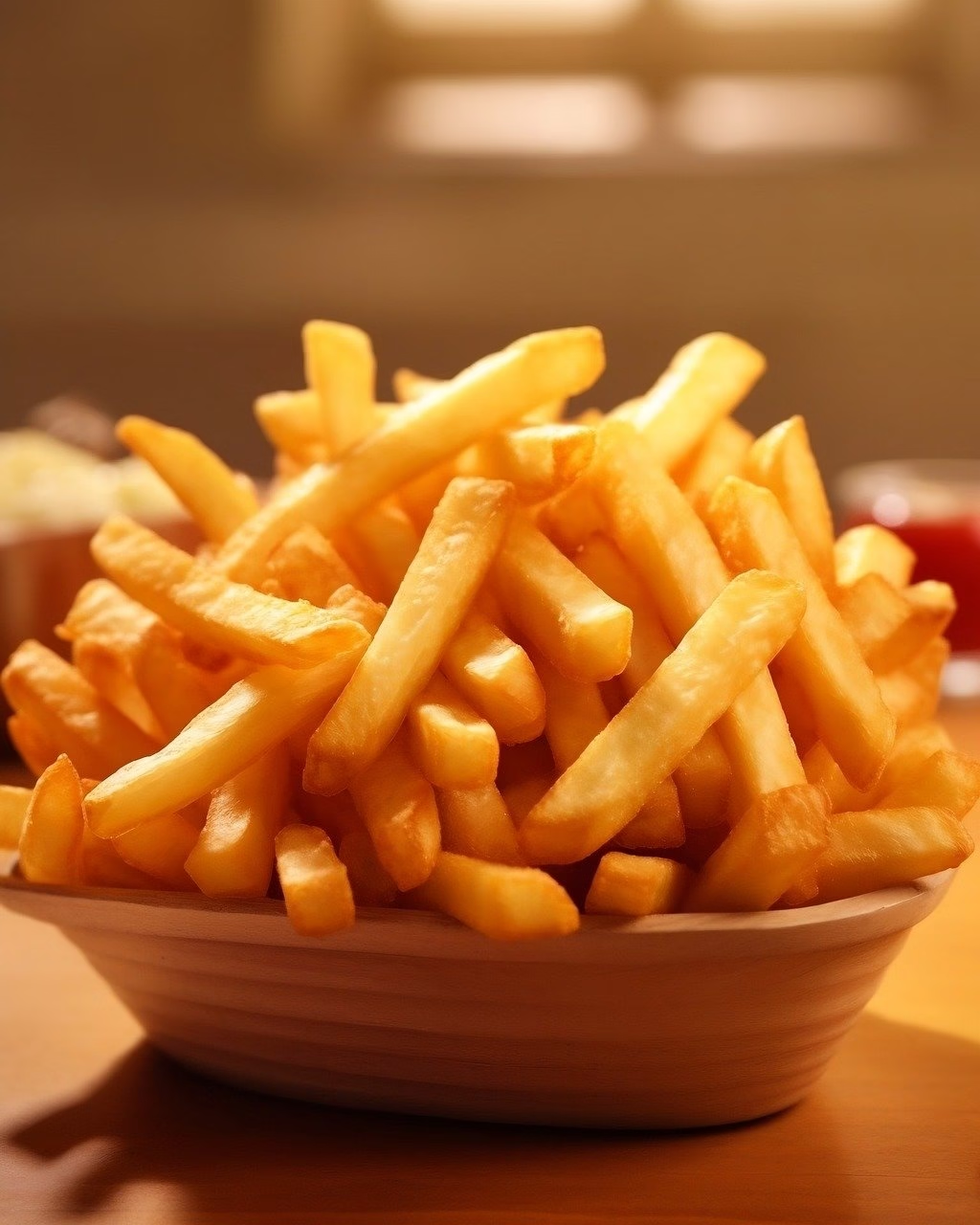Introduction: The Secret Behind Restaurant Fries
If you’ve ever wondered, “Why do restaurant fries taste better” than those made at home, you’re not alone. Despite using the same basic ingredients, there’s something about restaurant fries that makes them crispier, tastier, and more satisfying. In this post, we’ll explore the reasons why restaurant fries taste better and how you can replicate the experience at home.
The Key Ingredients That Make Restaurant Fries Taste Better
One of the main reasons restaurant fries taste better is the choice of ingredients. Many restaurants use high-quality potatoes, such as Russets, which have the perfect balance of starch and moisture for a crispy, fluffy fry. The oil used for frying also plays a critical role—restaurants often opt for oils like peanut oil, which creates a crispier, more flavorful fry compared to the common vegetable oils used at home.
The Importance of Cooking Method
The method of cooking is another factor in why restaurant fries taste better. Many restaurants use professional fryers that heat the oil to an ideal temperature for consistent cooking. The secret to restaurant-quality fries often lies in the technique of double frying. The fries are cooked twice—first at a lower temperature to cook through, and then again at a higher temperature to achieve that golden, crispy texture.
At home, achieving the perfect fry can be tricky, especially if you’re using a regular frying pan instead of a deep fryer. The uneven heating often leads to less crispy fries that don’t have the same texture.
Why Frying Temperature Matters
Frying temperature is critical to why restaurant fries taste better. Restaurants maintain the oil at a consistent temperature, typically between 350°F and 375°F. This helps ensure the fries are cooked evenly, with a crispy exterior and soft interior. Home frying often leads to uneven cooking, as it’s more difficult to keep the oil temperature stable.
The Role of Seasoning and Salt
Once the fries are fried, restaurants know the secret to great flavor: proper seasoning. After frying, fries are generously salted while they are still hot, allowing the salt to adhere perfectly to the surface. Some restaurants also use specialty seasonings to elevate the taste, making their fries unique.
At home, it’s easy to forget to season fries properly or apply salt after they’ve cooled down, which can make them taste bland.
Conclusion: Why Restaurant Fries Taste Better
The secret behind why restaurant fries taste better boils down to a combination of high-quality ingredients, professional frying equipment, and the techniques used in preparation. From selecting the right potatoes to maintaining the perfect frying temperature, restaurants have mastered the art of making fries irresistible. While you can replicate some of these methods at home, professional fryers and experience are key to achieving that signature crisp and flavor.
Learn More:
- Learn more about the science of perfect fries
- Check out cooking techniques for crispy fries
- Get tips for making restaurant-style fries at home
FAQs About Restaurant Fries
1. Why do restaurant fries taste better than homemade fries?
Restaurant fries often taste better due to higher-quality ingredients, professional frying techniques like double frying, and the use of specialty oils and seasonings.
2. Can I make fries at home that taste like restaurant fries?
Yes, you can! Using Russet potatoes, high-quality oil, and double frying at the right temperatures will give you restaurant-style fries at home.
3. What oil do restaurants use to fry French fries?
Many restaurants use peanut oil or a blend of oils, as it has a high smoke point and adds flavor to the fries.
4. How can I get my fries crispy like restaurant fries?
To get crispy fries, use double frying: cook them once at a lower temperature, then fry them again at a higher temperature.
5. Should I season fries right after frying?
Yes, for the best flavor, season fries immediately after frying while they’re still hot, so the seasoning sticks better.’
Home
Omega-3 Fatty Acids
Parkinson’s Disease
Intermittent Fasting
Gym
Keto vs Fad diets
Calorie Count in Guinness and Other Drinks
Effective Weight Loss Diet
